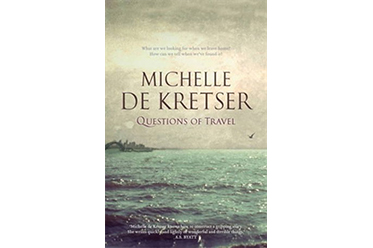 It was a strange year for fiction, 2013: so much promise; so many fine/established authors releasing new works; so many new voices vying for space. Did it live up to the hype? Not exactly.
It was a strange year for fiction, 2013: so much promise; so many fine/established authors releasing new works; so many new voices vying for space. Did it live up to the hype? Not exactly.
Australian writers did better than their international counterparts, it must be said. Michelle De Kretser produced a deserved Miles Franklin winner in Questions of Travel. Hannah Kent won over the public if not all the critics with Burial Rites.
Richard Flanagan is the clear victor in the late rush Christmas sales with The Narrow Road to the Deep North. Christos Tsiolkas and Tim Winton have weighed in without losing any cred, and Carrie Tiffany keeps getting the love despite publishing her novel Mateship with Birds last year.
These were deemed the hard-hitters of the Aussie publishing world, and none are there under false pretences. If we didn’t get a non-fiction title to rival last year’s Biggest Estate on Earth by Bill Gammage, we had to make do with the feeble Girt, so it wasn’t all good news. And Nikki Gemmell wrote something, so it could be viewed as a national year of shame, if one felt so inclined.
Otherwise, some big names produced fair to middling work that still managed to get raves in many of the major literary journals. My particular disappointment came from authors I’d heard so much about and had never tasted before. Elizabeth Strout’s Burgess Boys was a true flop for me, and Jim Crace’s Harvest was merely good. I expected far more from these two, and they failed me.
Burgess Boys was certainly very good when it stuck with themes the author felt at home in, namely the home. Strout’s uncanny way with depressing domesticity reads like a contemporised Walker Evans photograph come to life. Far less assured is her grafting of racial and religious issues onto her already enfeebled plot.
Her attempts to embody her Muslim characters with any sense of an inner life would be laughable if it weren’t so amateur. The whole novel reeked of upper-middle class guilt masquerading as empathy, and I won’t be revisiting this author’s work in the near future.
Jim Crace seems more promising, but no less disappointing. Harvest was expertly written, almost self-consciously poised, but dropped its dramatic cards all over the playing space. It established an almost unbearable sense of dread and then totally let the reader off the hook at the mid-way point. It’s as if The Lord of the Flies were to dribble out into an especially forgettable Hardy Boys adventure, minus the planes.
We did get a spectacular new novel from Javier Marías, who has solidified his place – along with Hilary Mantel – among the great living novelists of our age. The Infatuations is a gnarled and twisted masterpiece, endlessly riffing on notions of death and affiliation, playing with the reader deeply satisfying games. Each sentence is a stringy wonder, and recommends itself to repeat readings.
The great sensation (to English readers) was, of course, Karl Ove Knausgaard’s My Struggle compendium, despite the lack of translations for all but two of his novels in the six-novel series. Having read the first, and getting pretty antsy about the second, I have to agree with the hype on this one. Something truly unique is at play with this rather dour Norwegian’s work, novelistic and biographical, tedious and utterly addictive. It’s gloriously contrived, but it’s honest as a paper cut. I’m entranced and want more.
We’ve had a new Thomas Pynchon – always a welcome treat – and a Robert Harris that has had many salivating. But then a few big time authors have produced some doggerel for the pulping. James Lee Burke hardly set the world on fire with his new novel Light of the World, and Colum McCann disappointed with the dirge-like Transatlantic.
Colm Toibin wasn’t a complete loss with The Testament of Mary, but J.M Coetzee baffled fans and newcomers alike with the obscurely allegorical Childhood of Jesus. Sometimes, literature can give itself a bad name.
All of which goes to prove that art doesn’t exist in a vacuum, or even in a well-modulated, air-conditioned publishing house. It jumps out and takes us by surprise, or leaves us utterly deflated and depressed. 2013 was a little from column A and a little from column B. The old ‘we’re not coming last but we’re not coming first’ position. At this rate, bring on 2014.
Books of 2013 was written by Tim Byrne.
Image: Questions of Travel – Michelle De Kretser
